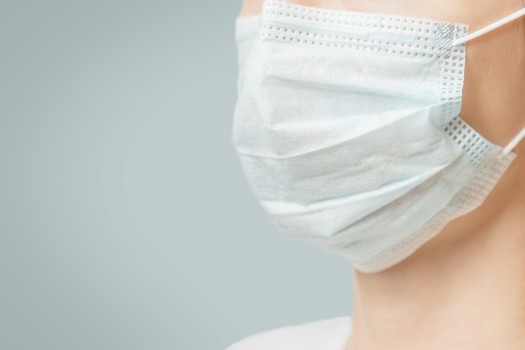‘Reassuring’ evidence on surgical masks for GPs but only in use with other PPE

A standard surgical mask provides similar levels of protection against respiratory viruses to a respirator mask, a rapid review set up to provide answers for staff working in primary care has concluded.
But the evidence to date is based on other infections including influenza, SARS, and MERS and not on Covid-19, the researchers from the Oxford Centre for Evidence-Based Medicine said.
Professor Trish Greenhalgh, professor of primary care health sciences, who co-authored the review, told Pulse that masks are only one component of protective equipment which must also include eye protection, gowns and general infection control measures as well as training on how to properly use it.
Work is underway on the evidence for other aspects of PPE, she said.
It comes after GPs and other healthcare staff in primary care had raised concerns about the limited PPE that had been provided for them.
Community and primary care teams wanted to know whether and in what circumstances standard masks were putting healthcare workers at risk compared to respirator masks, the researchers said.
The rapid review on face masks found that for non-aerosol-generating procedures (AGPs) ‘there is no evidence that respirator masks add value over standard masks when both are used with recommended wider PPE measures’.
The evidence provides ‘cautious support for the use of standard surgical masks in non AGPs’, it concluded although there is little evidence on their use outside of hospital.
‘The review is reassuring – but only up to a point,’ Professor Greenhalgh said.
‘It seems to show that for non-aerosol-generating procedures, and with the caveat that the mask must be properly fitted and worn (no undoing the top straps and letting it dangle between patients, for example), a standard surgical mask provides similar levels of protection against respiratory viruses to a respirator mask.’
But she added that there were also issues around what other protective gear was being worn in addition to the mask, such as goggles, gowns and aprons and gloves, for which recommendations had been issued.
‘It is very important to get the message across that the mask is only one component of the prevention package.’
There are also questions remaining around what should count as an AGP, she said.
‘It seems to have been assumed by people writing guidance that AGPs are things that mainly occur in hospital such as intubation but there are some common procedures like measuring peak flow rate and administering nebulisers which some clinicians are claiming could generate aerosols.
‘We are currently reviewing that literature and will have the reviews on the Oxford CEBM website as soon as they’re ready.’
NHS England has said every GP practice in the country has now received a delivery of PPE and they have launched a hotline which GPs can call if they require more.
But the BMA and RCGP have warned this is not the case for all members, with the BMA stating that GPs and hospital doctors ‘will die’ without proper protection.









